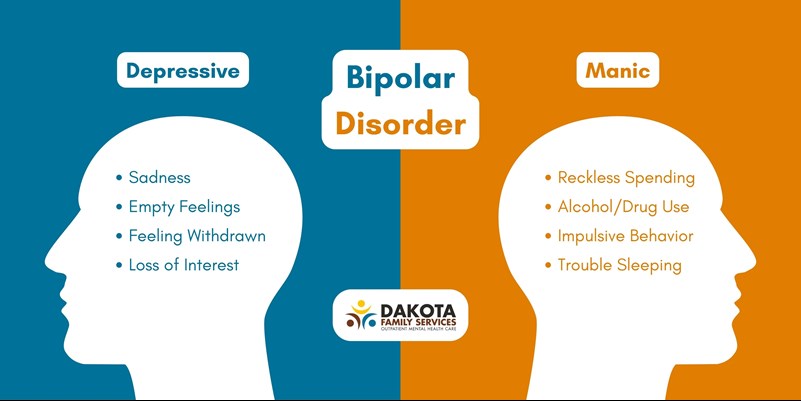Bipolar Disorder
Definition
Bipolar disorder is a mental health condition that causes unusual shifts in mood, energy, activity levels, and the ability to carry out day-to-day tasks. Bipolar disorder has two distinct phases—manic and depressive. Symptoms of the manic phase can include out of control spending, increased alcohol or drug use, impulsive behaviors, and trouble sleeping. The depressive phase causes people to feel sad, withdrawn, empty, and/or to lose interest in things they once enjoyed. Symptoms in either phase can last for days or weeks.
Bipolar disorder is also referred to by the following terms:
- Manic Depressive Disorder
- Manic Depression
Key Things to Know About Bipolar Disorder
- Bipolar disorder is a serious mental illness affecting more than 2.5 million Americans.
- While there are no valid cures for bipolar disorder, research has shown that bipolar disorder can be successfully treated so people with the condition can lead normal lives.
- Bipolar disorder can be controlled with a combination of medication, therapy, and lifestyle changes. Most people respond well to treatment.
- Bipolar is generally easier to diagnose and treat when it is recognized early.
- It's important for family members and friends to recognize and watch for the symptoms of oncoming manic or depressive episodes.
- It’s a common misconception that moods change fast in someone that struggles with bipolar disorder. There is mood cycling, but it doesn’t occur quickly.


